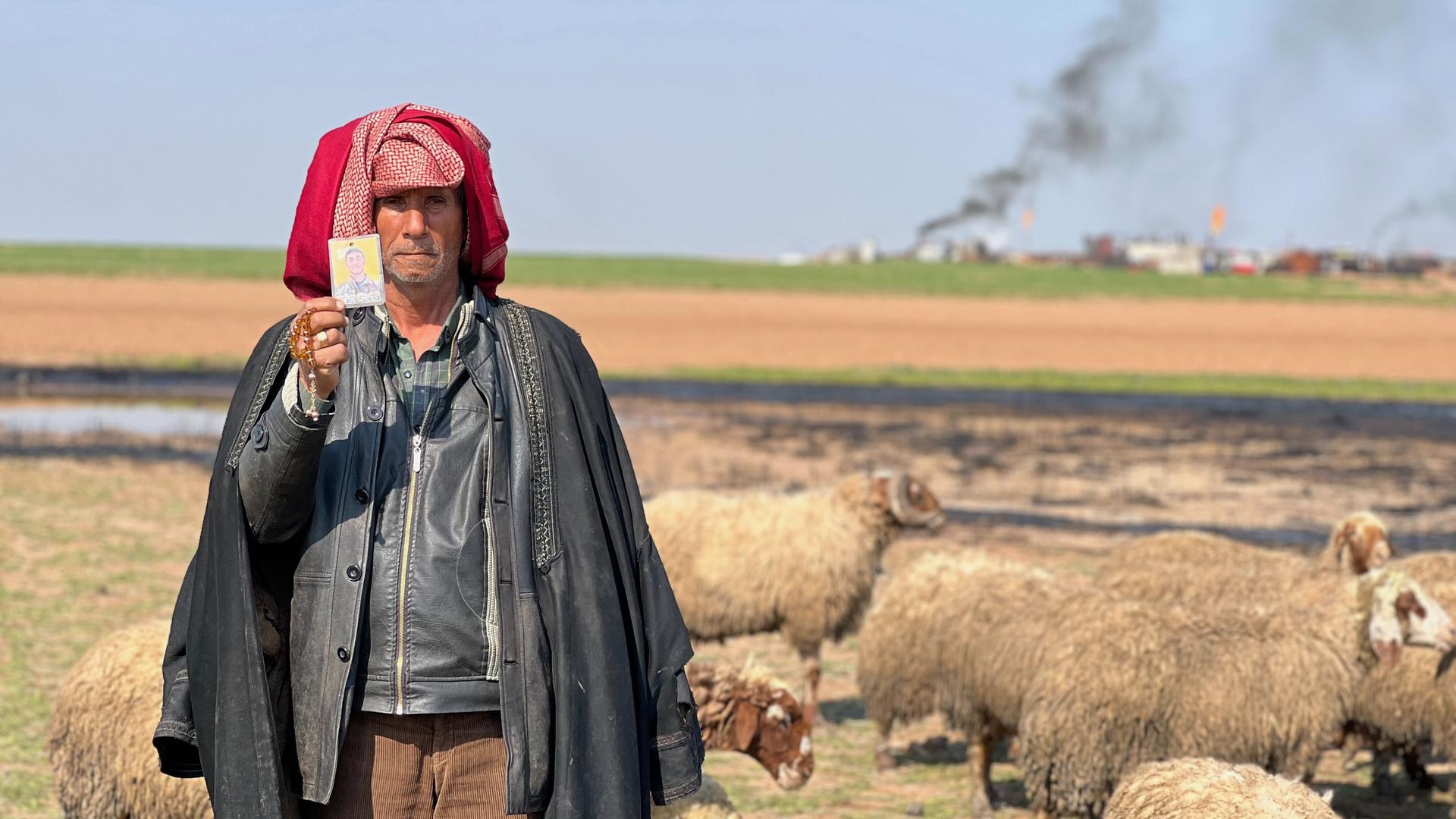Oil refineries in northeastern Syria are sickening people and polluting the environment
On a sunny day in March, shepherd Muhiddin Ahmad al-Mahmoud oversaw his flock of sheep grazing on a green patch on the outskirts of Qamishli in northeastern Syria.
His two young sons were close by keeping an eye on the animals.
“Everyone here has been touched by the civil war in Syria in one way or another,” he said as he pulled out a photo of his oldest son, who was killed in a Turkish airstrike two years ago.
More than a decade of war has destroyed much of the critical infrastructure in northeastern Syria. But bombs are not the only killer here — sprawling makeshift refineries in the area pose a different kind of threat.
Across northeastern Syria, refineries provide fuel for cars, heat and electricity. But this critical resource is also making people sick and destroying the environment.
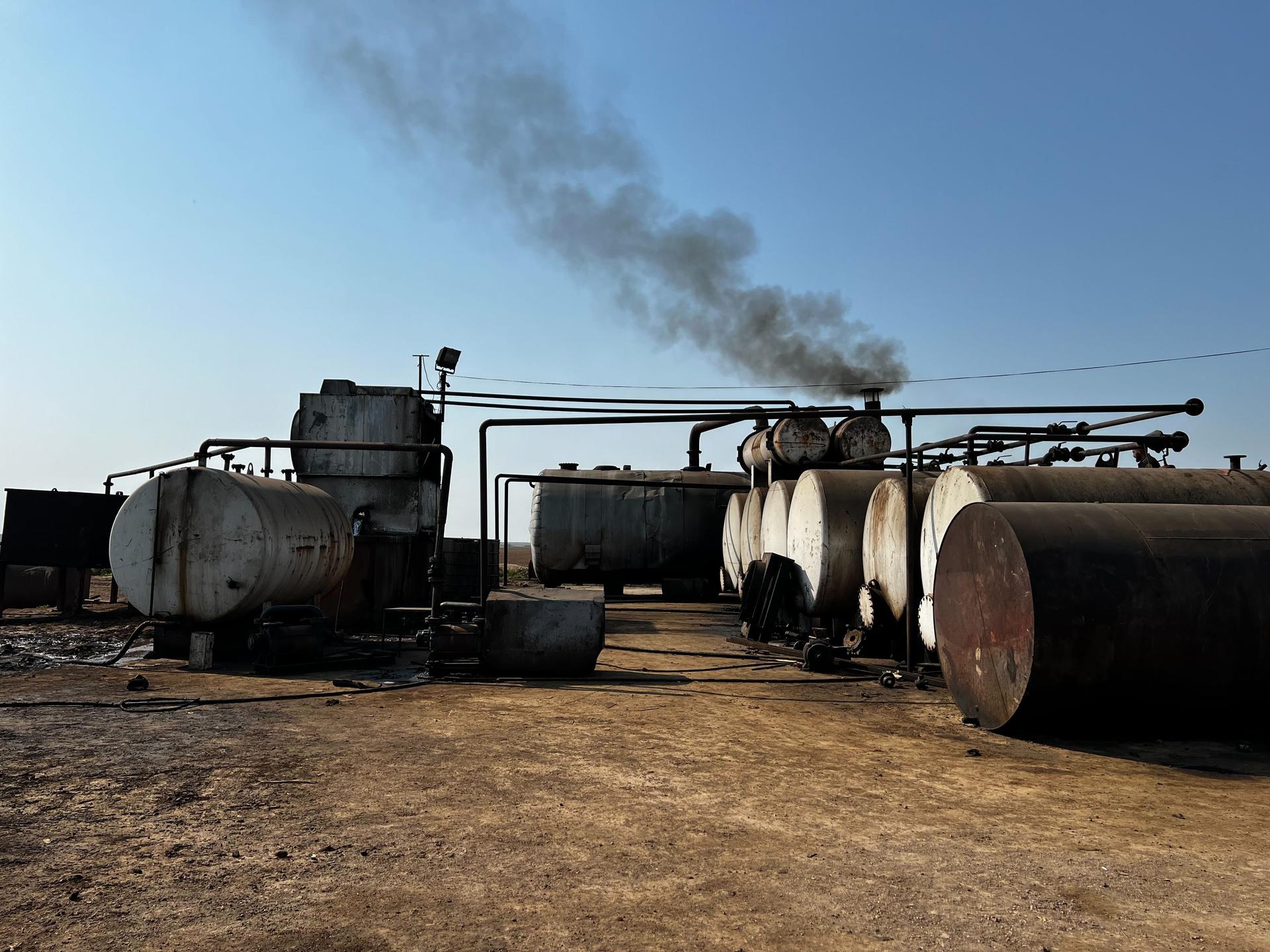
Just beyond Mahmoud’s fields was a dystopian scene — a makeshift refinery where gas flares released toxic fumes and pipes spewed black smoke into the air. Small pools of oil dotted the pasture. The older sheep’s wool had turned black, and their eyes were heavy with exhaustion.
These refineries are a major source of income for local residents like Mahmoud.
He said he is grateful for these refineries because they provide much-needed work for the people around here.
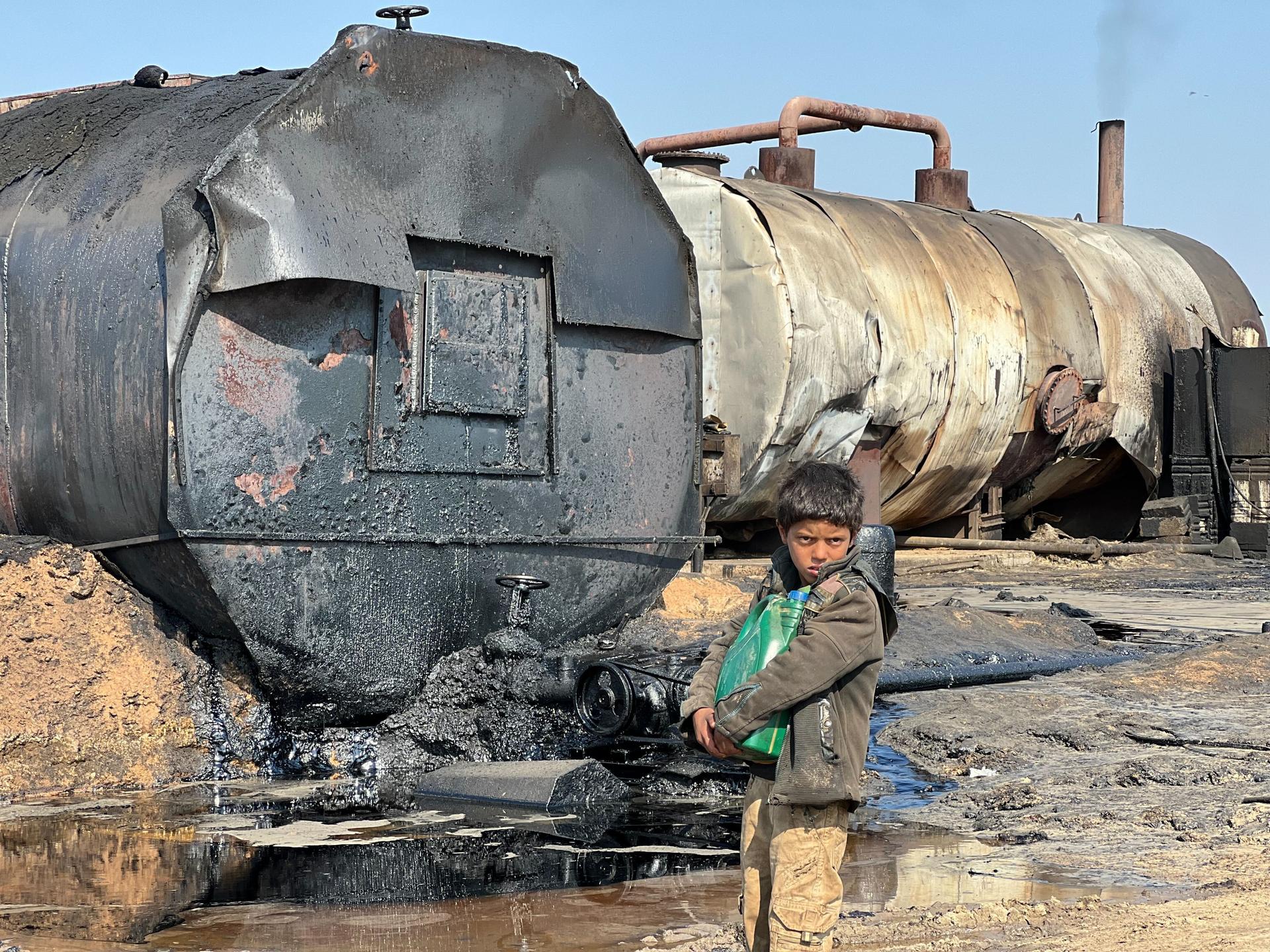
But the presence of powerful chemicals lingers in the air — even at this distance.
Mahmoud continues to bring his sheep to graze in this area as he has done for the past decade. He insisted that his animals are healthy. But they don’t get too close to the refinery because of the awful stench.
Abu Heydar Amal al-Shammari is one of five people who co-own the refinery near Mahmoud. Shammari said he used to be a wheat farmer, but he faced droughts for four or five years.
“There was no rain, no water for the fields, so I had no choice but to quit farming and look for another job,” he explained.
The refinery produces about 200 barrels of fuel each day, Shammari said.
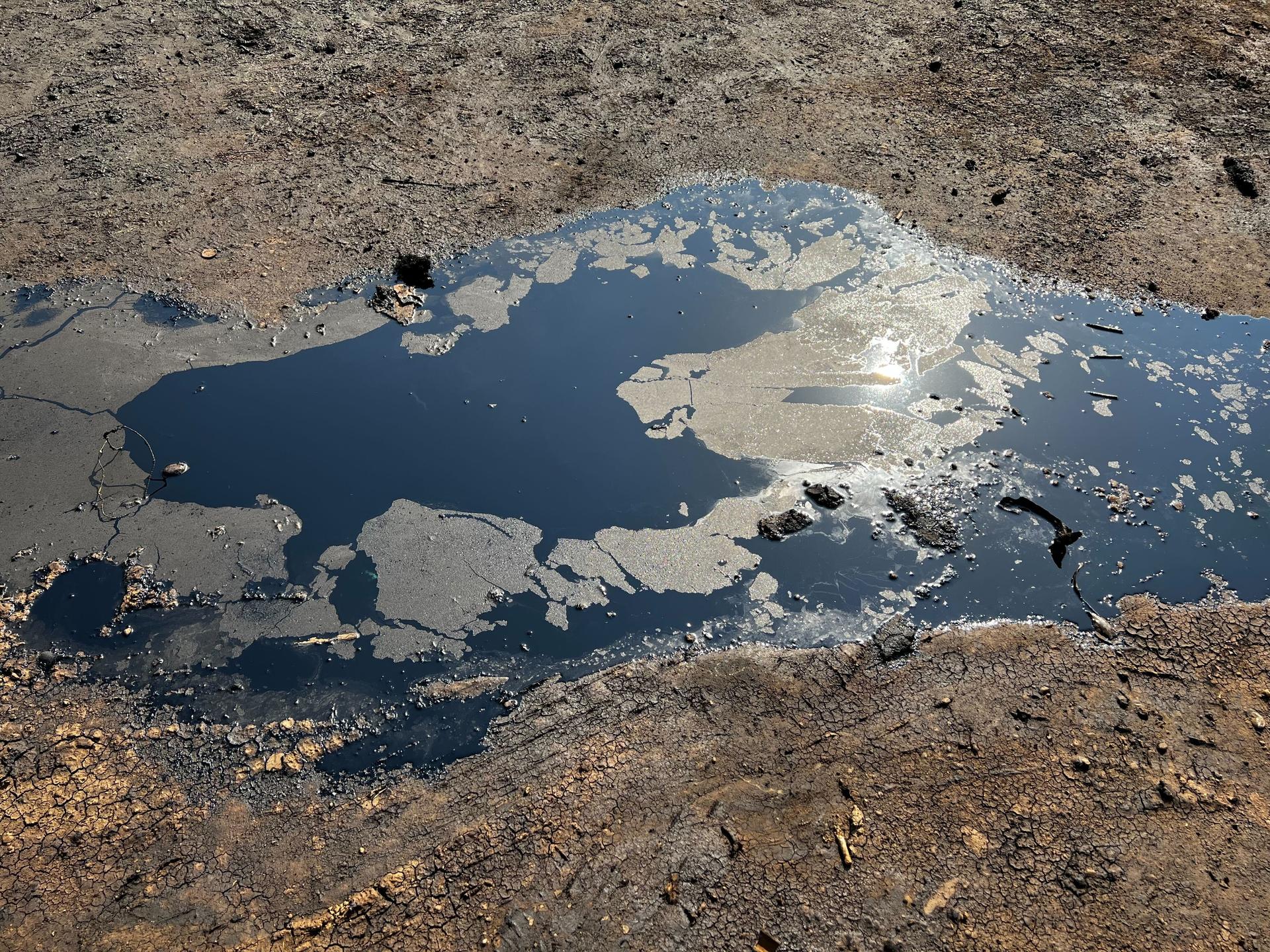
Tankers fill up the fuel and transport it all across northeastern Syria. Some of the final product also makes it into government-held areas. The Kurdish administration owns the oil fields in this part of Syria but it grants permits to private owners for the refineries.
Shammari said he paid $30,000 for his permit. He makes good money, he added, without specifying how much.
Jewad Khaled Mohammad has worked at the refinery for the past six months. He said he has already noticed a difference in his health. He wakes up at night with a tightness in his chest, gets frequent headaches and has difficulty breathing.
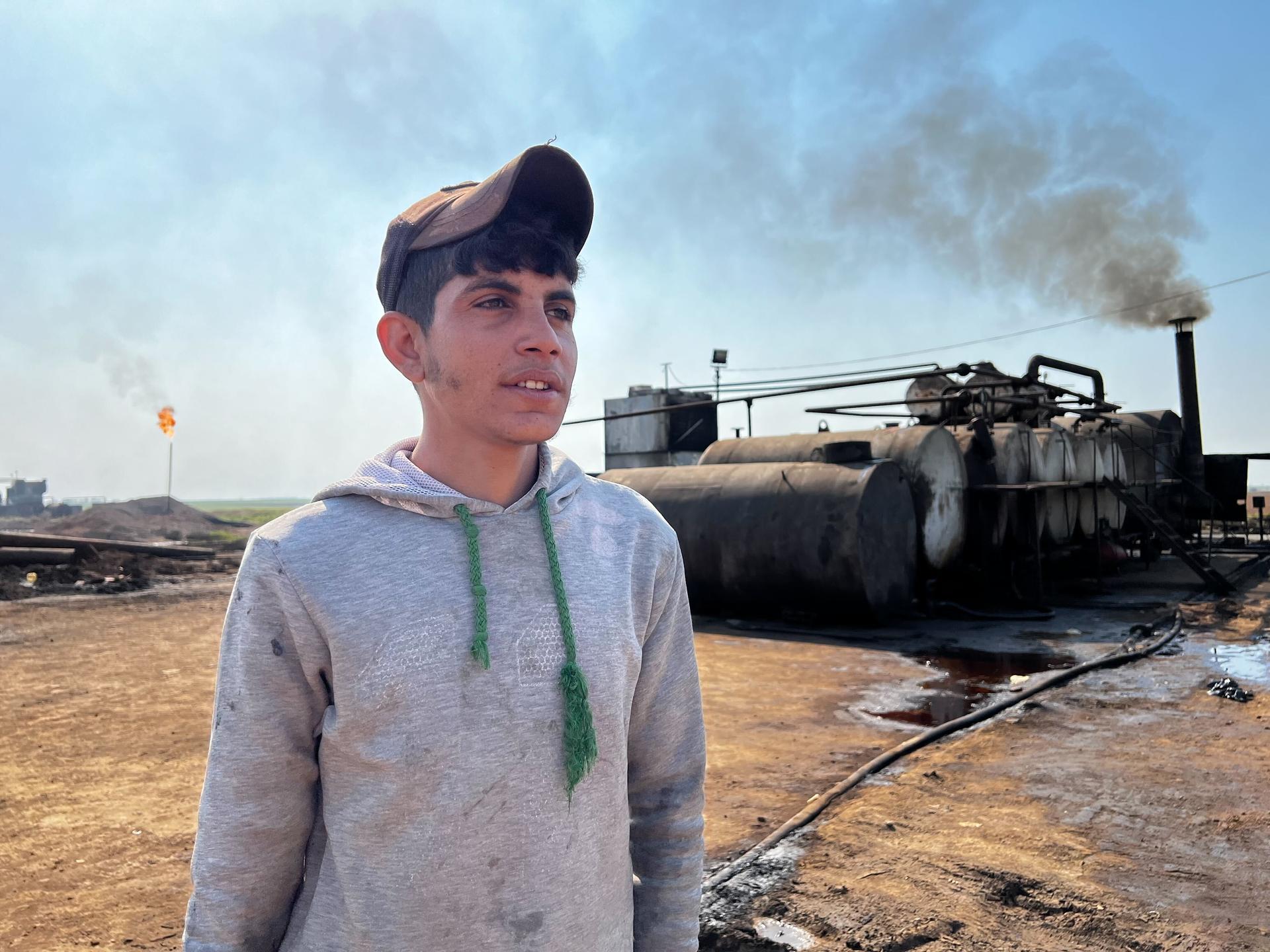
Mohammad said he knows that his long-term health will be affected by this work. But he has no other options.
Other workers who asked not to be named described feeling anxious and restless and said that inhaling toxic fumes 10 hours a day takes its toll.
The environmental damage is visible at the Al Radd River — about half an hour’s drive from the refinery. Blobs of black oil floated in the muddy water.
Downstream, sheep drank from the same river.
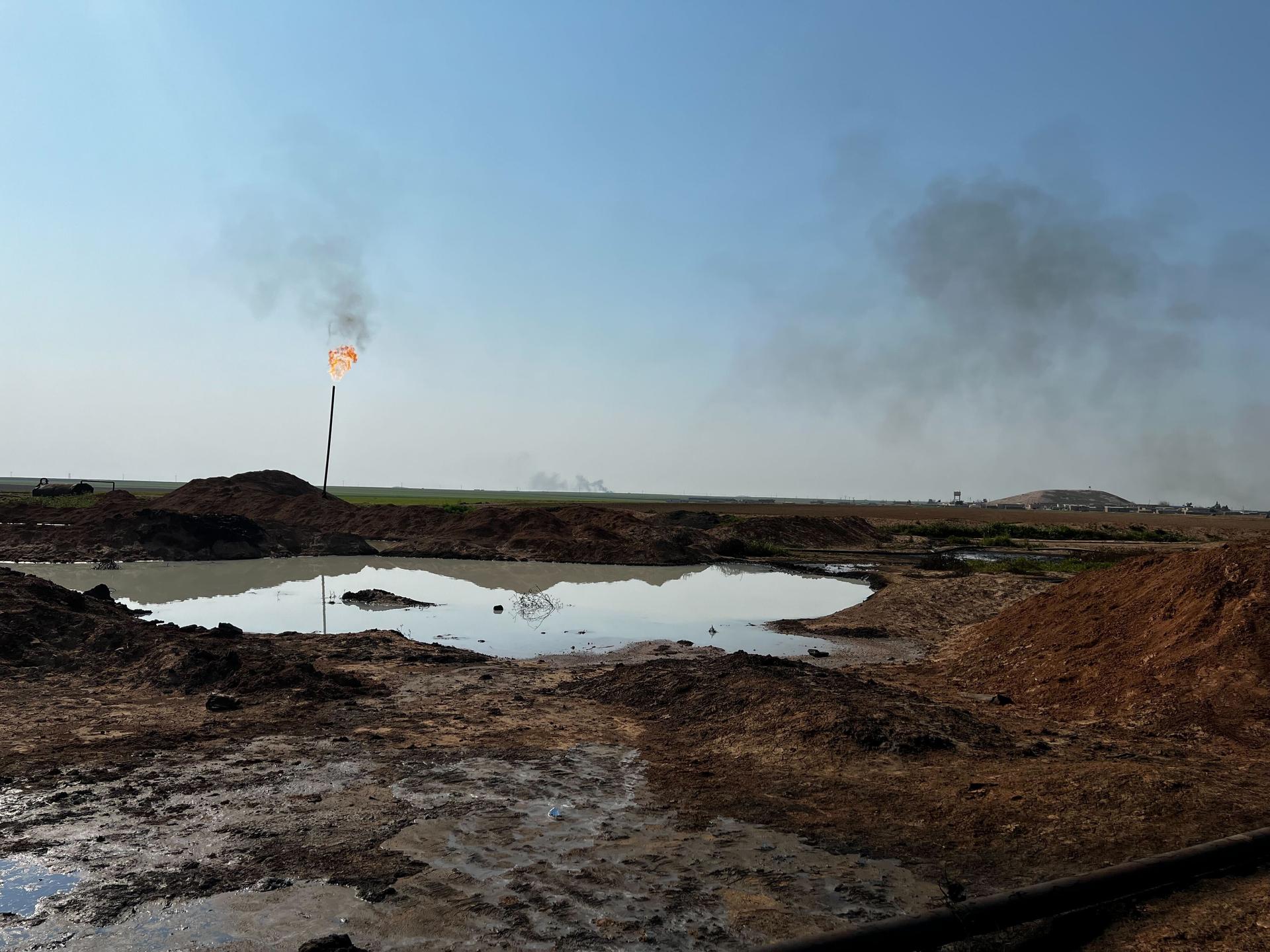
Kawa Mohammad, an official from the Rmeilan field administration, said this oil spill is a result of recent Turkish strikes on oil fields and refineries in the area.
Turkey sees the Kurdish administration here as a security threat and targets them regularly.
Mohammad estimated that it will take at least one year for this river to be completely cleaned up. And, he echoed what others said.
“People around here rely on these old refineries for their livelihoods and for fuel,” Mohammad explained. “It’s true that they cause a lot of pollution and health problems — but what other choice do we have?”
The Kurdish administration purchased new equipment to upgrade these refineries, according to him. But they have been stuck on the other side of the border in Iraq. Syria is under US sanctions, and they can’t get them through.
So, for now, people in this part of the country pay a heavy price to fill up their cars, keep warm and turn on the light at night.
Editor’s note: Mohammed Hassan provided assistance for this reporting.
